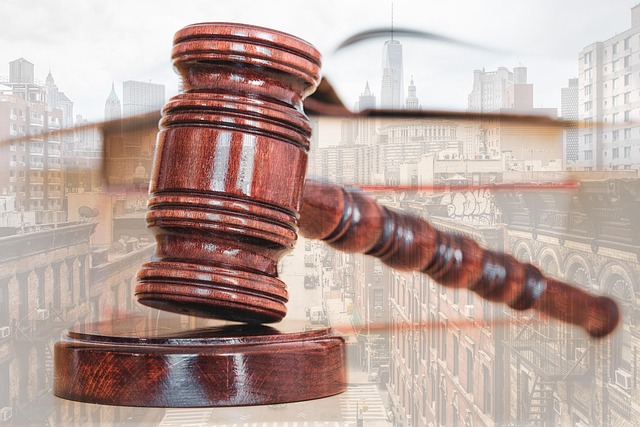The Federal Sentencing Guidelines for Drug Offenses are a stringent legal framework applied to white-collar crimes, including financial frauds. Organizations and individuals must adopt transparent practices, robust controls, and meticulous record-keeping to avoid severe consequences. These guidelines, originally for drug crimes, offer a versatile approach to sentencing complex fraud cases, emphasizing accountability and proportionality. Financial institutions utilize these guidelines for suspicious transaction monitoring and collaboration with law enforcement, deterring potential crimes. Case studies highlight the significant impacts of fraudulent practices, underscoring the need for proactive measures and legal frameworks like the Federal Sentencing Guidelines.
“In the complex world of finance, fraudulent practices pose a significant threat, often hidden beneath the surface of legitimate operations. This article delves into the intricate web of financial fraud, exploring its various schemes and impacts. We examine federal guidelines specifically targeting drug-related offenses, as these cases carry severe sentencing consequences. By understanding the factors at play, we can enhance prevention strategies and improve detection methods. Real-world case studies will illustrate the far-reaching effects of financial crimes, shedding light on the importance of robust legal frameworks like the Federal Sentencing Guidelines for Drug Offenses.”
- Understanding Fraudulent Financial Schemes
- Federal Guidelines: Drug Offenses Focus
- Sentencing: Factors and Consequences
- Preventing & Detecting Financial Crimes
- Case Studies: Real-World Examples
Understanding Fraudulent Financial Schemes
Fraudulent financial schemes encompass a wide array of illicit activities designed to manipulate and deceive individuals or entities for monetary gain. These schemes can range from simple lies and misrepresentations to complex, multi-layered operations involving intricate accounting frauds. Understanding these practices is crucial in both a personal and professional context, especially given the severe consequences under the Federal Sentencing Guidelines for Drug Offenses, which often serve as a benchmark for white-collar crimes.
Avoiding indictment in such cases requires meticulous record-keeping, transparent communication with corporate and individual clients, and robust internal controls. The landscape of white-collar defense is labyrinthine, with laws and regulations designed to protect both the innocent and deter criminals. Therefore, staying informed, implementing stringent compliance measures, and seeking professional legal advice are essential steps in safeguarding against fraudulent financial practices.
Federal Guidelines: Drug Offenses Focus
The Federal Sentencing Guidelines for Drug Offenses play a pivotal role in shaping the legal consequences for individuals involved in fraudulent financial practices, particularly when intertwined with drug-related crimes. These guidelines provide a structured framework to ensure consistency and fairness in sentencing across federal courts. Prosecutors and defense attorneys alike must navigate these intricate rules, aiming for winning challenging defense verdicts while adhering to the stringent criteria outlined by the Guidelines.
The focus on white collar and economic crimes within the Federal Sentencing Guidelines offers a nuanced approach to addressing fraudulent activities. By distinguishing these offenses from violent crimes, the system recognizes the unique challenges and complexities involved in financial investigations. However, it also emphasizes the severity of such actions, as evinced by potential penalties and the aim to avoid indictment for individuals facing these charges.
Sentencing: Factors and Consequences
When discussing sentencing for fraudulent financial practices, especially in cases involving complex schemes or significant economic damage, both federal and local jurisdictions often refer to guidelines that help determine the appropriate punishment. The Federal Sentencing Guidelines for Drug Offenses, while primarily designed for drug-related crimes, offer a framework applicable to various types of fraud due to their emphasis on accountability and proportionality. These guidelines consider numerous factors, such as the nature and extent of the fraud, the role played by the individual within the scheme, and any attempts at obstruction or cooperation with investigators.
One crucial factor is whether the accused has avoided indictment through proactive measures, like providing substantial assistance to authorities throughout all stages of the investigative and enforcement process. Such actions can significantly mitigate potential sentencing, reflecting positively on both the individual’s character and their commitment to rectifying the fraudulent practices. Conversely, if a defendant obstructs justice or attempts to evade responsibility, sentencing guidelines may enhance the penalty, ensuring that justice is not only served but also deterring similar misconduct in the future.
Preventing & Detecting Financial Crimes
Preventing and detecting financial crimes is a multifaceted endeavor that involves robust regulatory frameworks and advanced investigatory techniques. Financial institutions play a pivotal role in this effort by adhering to guidelines like the Federal Sentencing Guidelines for Drug Offenses, which offer a structured approach to addressing illicit activities. These guidelines provide clear parameters for identifying suspicious transactions, reporting them to relevant authorities, and collaborating with law enforcement throughout all stages of the investigative and enforcement process.
By employing sophisticated analytics and monitoring systems, financial institutions can effectively flag unusual patterns or behaviors that may indicate fraudulent activities. This proactive approach enhances their ability to detect and deter potential financial crimes, thereby contributing significantly to maintaining the integrity of the global financial system. Furthermore, the complete dismissal of all charges in successful defense against such allegations underscores the importance of robust internal controls and meticulous record-keeping practices.
Case Studies: Real-World Examples
Fraudulent financial practices, often characterized as white-collar and economic crimes, have far-reaching consequences for both corporate and individual clients. To illustrate these effects, several notable case studies highlight the severity and impact of such activities. One prominent example involves a major accounting firm that engaged in fraudulent reporting, leading to significant losses for investors and damaging the public’s trust. The company’s executives were subsequently charged under the Federal Sentencing Guidelines for Drug Offenses, demonstrating the seriousness with which these offenses are treated.
Another case involves a political figure who misused their position to divert funds from charitable organizations, affecting philanthropic and political communities. This manipulation underscored the need for robust oversight and enforcement mechanisms. These real-world scenarios not only underscore the financial implications but also highlight the broader societal impact of fraudulent practices, reinforcing the importance of vigilance and stringent legal frameworks, such as the Federal Sentencing Guidelines, in combating white-collar crimes.
In conclusion, understanding fraudulent financial practices is paramount in today’s digital era. By examining various schemes, federal guidelines such as the Federal Sentencing Guidelines for Drug Offenses, and real-world case studies, we can better equip ourselves to prevent and detect these crimes. Awareness, coupled with robust sentencing factors, plays a crucial role in fostering a safer financial landscape.






